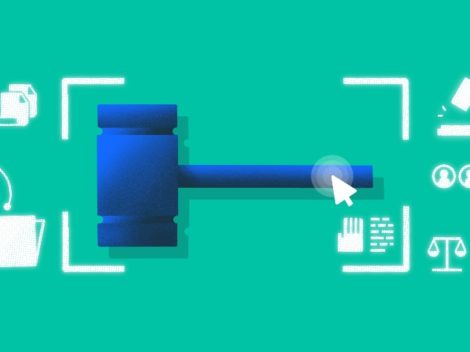Most people who’ve ever called customer service share the experience of navigating endless automated prompts in the hopes of getting to a human. For years, it’s been a familiar process for more complex questions and issues.
As AI technology advances, however, there are successively fewer cases that demand this. AI chatbots, using voice or text, can handle much of what used to require a person.
If startup investors have their way, expect AI agents to be taking on a lot more. In recent months, investors have poured hundreds of millions of dollars into an assortment of companies developing tools to automate customer service-related tasks, Crunchbase data shows.
Big rounds on the rise
They’re apparently not slowing down either. One of the most highly valued startups in the space — Sierra — just closed a $350 million financing at a $10 billion valuation The 2-year-old company offers tools for organizations to build AI agents to perform customer support tasks.
Sierra’s appeal stems in part from its founding team: former Salesforce 1 co-CEO and current OpenAI board chair Bret Taylor and former Google executive Clay Bavor. The company raised $175 million less than a year ago at a $4.5 billion valuation.
However, it’s not the only startup in the space attracting investor interest. Rather, San Francisco-based Sierra is one of a growing roster of startups at the intersection of AI and customer service that have secured sizable rounds in recent months.
Using Crunchbase data, we put together a sample list of 11 such companies.
Taking on repetitive language tasks
Rising investor interest around customer service tech is one manifestation of a growing theme: AI taking on tasks that previously resisted automation because they require a sophisticated grasp of language.
“Every job is going to be impacted in some way by these language models,” Kent Bennett, a partner at Bessemer Venture Partners and a heavy investor in enterprise AI, told Crunchbase News. For customer service in particular, he sees benefits for employers, including enabling workers to be more productive by offloading mundane tasks to AI.
Certainly startups are making this argument. Sierra’s website points to a case involving a headgear brand that built a voice-capable AI agent in a couple weeks to handle product questions. It claims that: “Within 30 days, the agent resolved nearly half of incoming questions that would normally require human input.”
Capacity, which offers an automation platform for contact centers, sees a strong use case in tech support, with the ability to auto-respond to common questions and prioritize which issues merit the fastest response. And Forethought, a provider of generative AI tools for customer support, lists several prominent companies that have deployed its offerings, including Grammarly and Upwork.
Broad impacts
Of course what’s good for startups isn’t always good for the broader job market. As AI tools automate more aspects of customer service, it’s not hard to predict that the end result will be fewer jobs in the space.
That is already happening at Salesforce, which CEO Marc Benioff said has cut about 4,000 customer service roles since AI agents now do more of the work. Expect similar announcements to come from early adopters.
For those of us who are receiving rather than providing customer support services, meanwhile, it’s still early days for forming opinions on how well AI agents perform in these roles. Probably one sign of success is if we don’t really notice the role of AI and simply manage to get an accurate response without having to wait.
Related Crunchbase query:
Illustration: Dom Guzman

Stay up to date with recent funding rounds, acquisitions, and more with the Crunchbase Daily.



![Illustration of a man sitting on a huge pile o' money. [Dom Guzman]](https://news.crunchbase.com/wp-content/uploads/Giant_Funding-470x352.jpg)



![Illustration of a guy watering plants with a blocked hose - Global [Dom Guzman]](https://news.crunchbase.com/wp-content/uploads/quarterly-global-3-300x168.jpg)
67.1K Followers